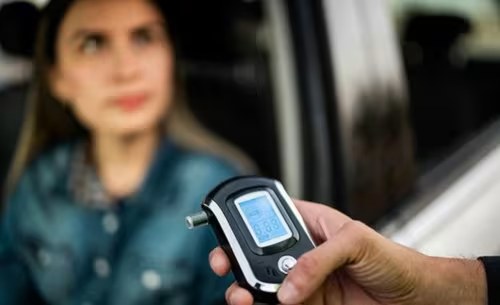Disclaimer: This guest post was written by a third party and is for informational purposes only. It does not constitute legal advice or create an attorney-client relationship with The Meehan Law Firm. For legal advice, please contact our office.
.png)
.png)
After a DUI arrest in California, the road to keeping or regaining your driver's license is steep and complex. Upon arrest, most drivers are subject to an immediate administrative suspension through the California Department of Motor Vehicles (DMV). This administrative suspension, known as the "Admin Per Se" suspension, will begin 30 days after the arrest unless a DMV hearing is requested within 10 days. This is separate from any criminal penalties that the court may later impose.
If no DMV hearing is requested or the driver loses the hearing, the suspension period generally lasts 4 to 6 months for a first offense, but it can extend up to a year depending on the driver's blood alcohol concentration (BAC) and whether the driver refused chemical testing.
Reinstatement Requirements: The Road to Driving Again
Restoring your driving privileges is not automatic. After serving the mandatory suspension period, you must meet specific reinstatement requirements before you can legally drive again. Key steps include:
- Completion of a California DUI program: For a first-time DUI, the court and DMV usually require enrollment and completion of a state-licensed DUI education program. The length of the program can vary from 3 months to 9 months, depending on BAC levels.
- Proof of financial responsibility: You must file an SR-22 form with the DMV. This document, issued by your auto insurance company, verifies that you carry the minimum required liability insurance and they know you have a DUI action with the DMV.
- Payment of reinstatement fees: The DMV requires a reissue fee, typically around $125, to reinstate a suspended license.
Failure to satisfy these requirements will result in continued license suspension even after the initial suspension period has ended. The suspension will not end until the driver takes action.
Restricted Licenses: A Lifeline for Limited Mobility
California recognizes that a total loss of driving privileges can severely disrupt lives. In some cases, you may be eligible for a restricted license. This restricted license allows you to drive to essential locations, such as your place of employment, DUI classes, and medical appointments.
Eligibility typically requires:
- Proof of enrollment in a DUI education program
- Filing an SR-22 form
- Installation of an ignition interlock device (IID) if applicable
- Sitting out the first 30 days of the suspension period.
- Payment of applicable fees
For a first DUI offense without injuries, many drivers can obtain a restricted license after completing a 30-day hard suspension period. However, if chemical test refusal is involved, restricted license eligibility may be denied entirely.
Ignition Interlock Devices and License Suspensions
The use of an ignition interlock device (IID) has transformed how California handles DUI-related license suspensions. As of 2019, under California law, many first-time DUI offenders must install an IID for a period if they wish to drive during the suspension term.
An IID is a small breathalyzer installed in your vehicle. It requires you to provide a clean breath sample before the engine starts and at intervals while driving. The installation of an IID can allow immediate unrestricted driving privileges, by passing the suspension period. need for a traditional restricted license.
The length of mandatory IID installation depends on factors such as prior DUI offenses and whether the incident involved injuries. For a first non-injury DUI offense, the IID requirement typically lasts six months.
Extended Suspensions for Aggravating Factors
Certain circumstances will significantly increase the suspension period or impose harsher restrictions. These include:
- Refusal to submit to an evidentiary chemical test
- Having a BAC of 0.15% or higher
- Causing bodily injury to another person
- Prior DUI convictions within the past 10 years
For example, a refusal to complete a chemical test can result in a suspension of one year for a first offense, two years for a second offense, and three years for a third offense, with no eligibility for a restricted license during the suspension period.
It is important to note that some Courts will order the installation of an Ignition Interlock Device as a term of your sentence whether or not required by the DMV.
Driving With a Suspended License: Additional Penalties
Driving while your license is suspended after a DUI conviction carries severe consequences. It is a criminal offense under California Vehicle Code §14602. Penalties may include:
- Additional suspension or revocation periods
- Substantial fines
- Mandatory jail time
- Extended DUI program requirements
- Mandatory Installation of an Ignition Interlock Device.
Repeat violations can result in felony charges, particularly if the offense is combined with additional DUI offenses.
The Importance of Legal Guidance
Navigating license suspensions, restricted licenses, and IID requirements after a DUI arrest is complicated. Each case has nuances based on the driver's history, BAC level, and circumstances of the arrest. Securing the guidance of an experienced DUI defense attorney like those at The Meehan Law Firm can be critical in minimizing license suspension periods and restoring driving privileges as soon as possible.
A DUI License Suspension is a Serious Setback
The consequences of a DUI in California extend far beyond court appearances and fines. Losing the ability to drive impacts every aspect of daily life, from getting to work to caring for family. Understanding the immediate and long-term requirements to regain driving privileges is essential for anyone facing a DUI charge. With strict timelines, mandatory programs, insurance requirements, and possible IID installations, the road to license reinstatement demands swift action and thorough attention to every legal requirement.
(844) 4-DUI STOP
Categories
Need Help?
Free Consultation, discreet, and no obligation- talk to an attorney.
More Blogs

How Can You Defend Someone Who Is Guilty?
Defense attorneys protect constitutional rights, ensure due process...
Read More..
Why a Second DUI Might Be Your Wake-Up Call
Facing a Second DUI in California: Why It Should Be Your Wake-Up Call..
Read More..
How To Spot a Bad DUI Lawyer in 10 Minutes or Less
Choosing the Right DUI Lawyer in California: Spotting Red Flags Early...
Read More..



